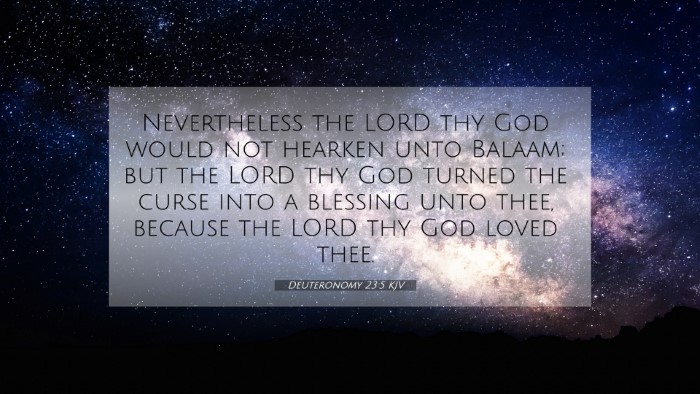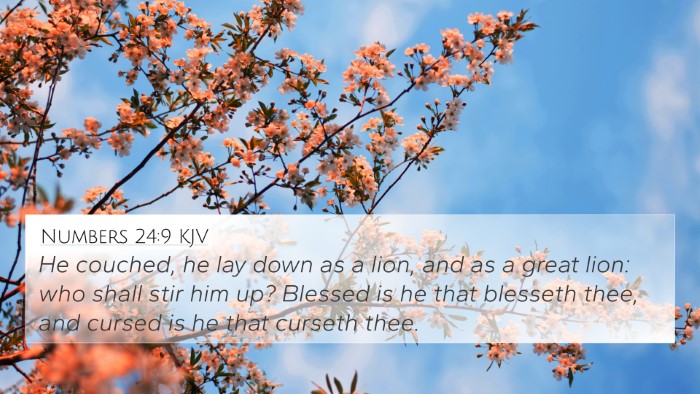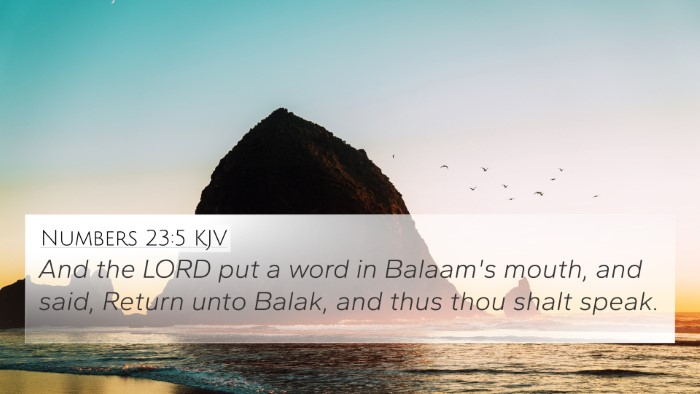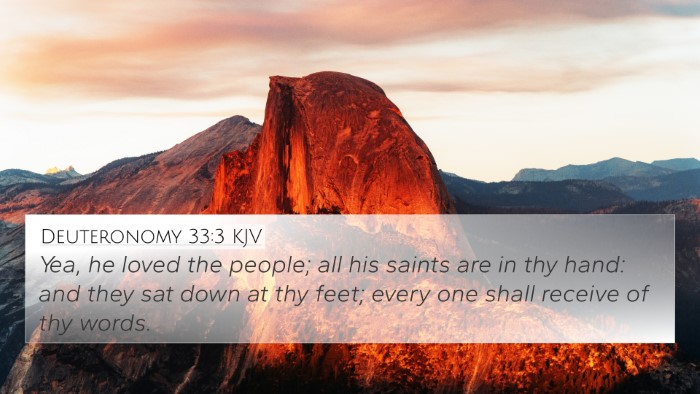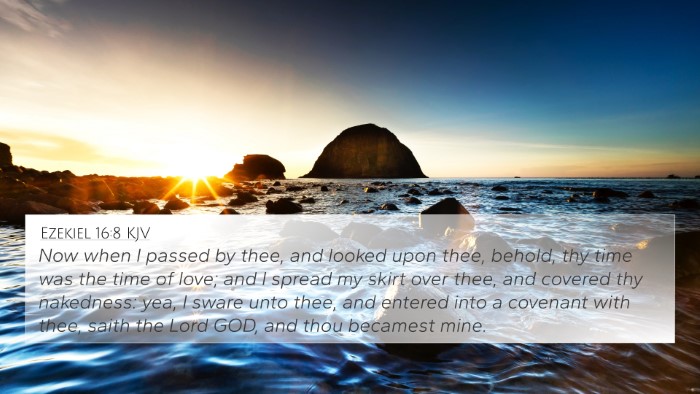Understanding Deuteronomy 23:5
Verse Text: "Nevertheless, the LORD your God would not listen to Balaam, but the LORD your God turned the curse into a blessing for you, because the LORD your God loves you." (Deuteronomy 23:5, ESV)
Summary of Meaning
Deuteronomy 23:5 emphasizes God's protection and favor over His people, specifically addressing His refusal to allow curses that were intended for them to take effect. The verse highlights the themes of divine love, redemption, and the transforming power of God in adverse situations. This reflects the broader theological understanding that God works cohesively for the good of those who belong to Him.
Commentary Insights
Matthew Henry's Commentary: Henry explains that the action of God not listening to Balaam signifies that He actively intervenes in the lives of His people to prevent harm. Here, the "curse" refers to harmful intentions directed at Israel, which God turns into a "blessing." This illustrates the sovereignty of God and His ability to change negative circumstances for the ultimate good.
Albert Barnes' Commentary: Barnes highlights the principle that God's love is not contingent on human actions or enemies' curses. He tailors His plans to bless His people, stressing God's character as fundamentally protective. The mention of God's love reinforces the argument that His people can trust Him in trials and tribulations, knowing that He works for their benefit.
Adam Clarke's Commentary: Clarke delves into the significance of Balaam as a symbol of opposition against God's will. He notes that even the most eloquent attempts to curse God's chosen people are futile when faced with divine will. The transformation of curses into blessings illustrates God's commitment to His covenant with Israel and His overarching plan for redemption.
Cross-References from Deuteronomy 23:5
- Numbers 23:11-12: Balaam's desire to curse Israel was thwarted by God's intervention.
- Psalm 21:11: The psalmist acknowledges God’s protection against deceitful plots.
- Romans 8:28: God works all things together for the good of those who love Him, highlighting His redemptive power.
- Galatians 3:13: Christ redeemed us from the curse of the law, affirming the theme of transformation.
- Genesis 12:3: Those who bless Abraham's descendants shall be blessed, reinforcing God's promise of protection.
- Isaiah 54:17: No weapon formed against God’s people shall prosper, echoing the theme of divine safeguarding.
- 1 Peter 3:9: Blessing others leads to receiving blessings, consistent with God’s nature.
Thematic Connections and Interpretations
The connections between Bible verses enable a deeper understanding of God's character and His design for humanity. In Deuteronomy 23:5, we can employ various tools for cross-referencing, allowing us to explore:
- The covenantal love of God: Highlighted in multiple verses throughout the Old Testament and reaffirmed in the New Testament.
- The role of divine intervention: Seen throughout scriptures where God modifies circumstances for the faithful.
- The nature of blessing and cursing: A recurring theme seen in other parts of scripture, emphasizing the ultimate triumph of God’s will.
Practical Applications
Understanding and cross-referencing passages related to Deuteronomy 23:5 provides believers with encouragement and hope. The tools for Bible cross-referencing allow individuals to see the unity of Scriptures and how specific themes interconnect. They can aid in:
- Studying the nature of God’s love and protection.
- Identifying God's redemptive work throughout the Bible.
- Preparing for sermons that convey the message of hope amidst adversity.
Conclusion
In conclusion, Deuteronomy 23:5 serves as a powerful reminder of God’s unwavering commitment to His people. The insights gathered from commentaries enhance our understanding of the text while presenting a clearer picture of God’s purpose in human history. The connections drawn to other verses help establish a holistic view of biblical themes, portraying the essential narrative of redemption and divine love that resonates throughout the Scriptures.


